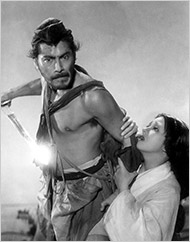
“Rashomon” is a classic 1950s black and white Japanese film by Akira Kurosawa. The movie depicts the (possible? probable?) rape of a woman and (apparent) murder of her Samurai husband as told through the eyes and memories of four witnesses/participants. Everyone swears they tell the truth but each produces radically divergent stories. By the end of the film the viewer is left with a great deal of uncertainty as to reality. Assailant? Seducer? Murder? Self-defense?
Rashomon stands for the truth that sometimes the truth can never be known with absolute certainty. It is well that we retain the humility that this awareness can bring. I am not advocating moral relativism; at some point, right is simply right and wrong is wrong. But between the pitch black at one end of the scale and white purity at the other end lies many shades of gray.
The same mountain can be viewed and described from many viewpoints, many angles. Only a fool thinks that makes anyone a liar. That awareness always tempers the actions and thoughts of the wise.
Closing quotes
“If you can trust yourself when all men doubt you but make allowance for their doubting too.” — Rudyard Kipling
“The road to hell is a spiral, a gentle but persistent bent in the straight and narrow.” — Phillip Wylie
“Let him who is without sin cast the first stone.” — Chapter 8, Verse 7, Gospel of John; Jesus speaking
“No matter how thin you slice it, there are always two sides to everything.” — Proverb
———-
Photo credit: Photofest/Film Forum
Photo caption: Toshiro Mifune and Michiko Kyo in Kurosawa’s “Rashomon,” a near-archetypal film about varying perspectives of truth.

